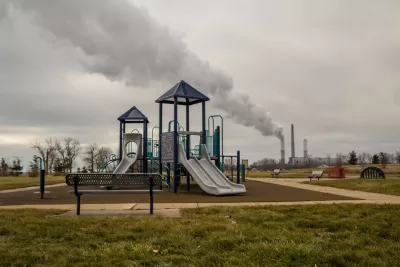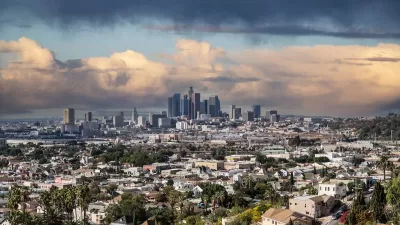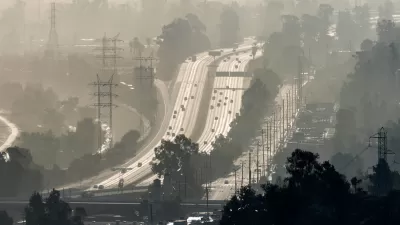Researchers at the University of Washington published a new study of the disparate impacts of air pollution in the United States

Across multiple pollution types, in different locations, and across the decades, people of color in the United States suffer worse consequences of air pollution that white people, according to an expansive new study.
The research, published today with open access in the Environmental Health Perspectives journal, investigated air pollution exposure disparities by race, ethnicity, and income for multiple criteria of air pollutants and in multiple locations and time periods.
"For all years and pollutants, the racial/ethnic group with the highest national average exposure was a racial/ethnic minority group," according to the study's abstract.
"While overall pollutant levels have dropped since 1990, when Congress amended the Clean Air Act, people of color are still more likely to be exposed to all six pollutants than White people in all 50 states and D.C." -Maxine Joselow for The Washington Post.
Maxine Joselow picked up the news of the research for The Washington Post, placing the findings in context of the efforts by the Biden administration to "[steer] federal investments in clean energy toward communities that have borne the brunt of pollution for decades, including low-income neighborhoods and communities of color."
FULL STORY: Air pollution still disproportionately harms communities of color, study says

Maui's Vacation Rental Debate Turns Ugly
Verbal attacks, misinformation campaigns and fistfights plague a high-stakes debate to convert thousands of vacation rentals into long-term housing.

Planetizen Federal Action Tracker
A weekly monitor of how Trump’s orders and actions are impacting planners and planning in America.

In Urban Planning, AI Prompting Could be the New Design Thinking
Creativity has long been key to great urban design. What if we see AI as our new creative partner?

King County Supportive Housing Program Offers Hope for Unhoused Residents
The county is taking a ‘Housing First’ approach that prioritizes getting people into housing, then offering wraparound supportive services.

Researchers Use AI to Get Clearer Picture of US Housing
Analysts are using artificial intelligence to supercharge their research by allowing them to comb through data faster. Though these AI tools can be error prone, they save time and housing researchers are optimistic about the future.

Making Shared Micromobility More Inclusive
Cities and shared mobility system operators can do more to include people with disabilities in planning and operations, per a new report.
Urban Design for Planners 1: Software Tools
This six-course series explores essential urban design concepts using open source software and equips planners with the tools they need to participate fully in the urban design process.
Planning for Universal Design
Learn the tools for implementing Universal Design in planning regulations.
planning NEXT
Appalachian Highlands Housing Partners
Mpact (founded as Rail~Volution)
City of Camden Redevelopment Agency
City of Astoria
City of Portland
City of Laramie





























